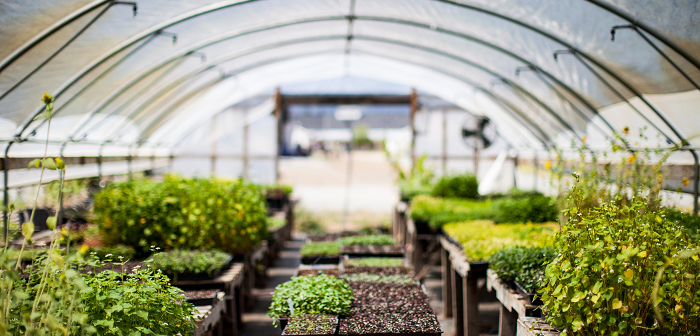Composting is an excellent way to improve your garden’s health. It can help strengthen plants and enhance the yields of edible crops such as fruits and vegetables. Adding nutrient-rich compost to the soil can enhance its structure, allow it to hold more water, and improve its ability to retain critical nutrients.
Compost is crucial in enhancing your garden soil’s water retention and drainage. It functions as a sponge, absorbing water and slowly releasing it to plant roots. Hence, it can prevent waterlogging and drought stress.
Research has shown that compost-amended soil fosters a diverse microbial community that enhances the plant’s ability to resist diseases. Therefore, adding compost contributes to healthier vegetable crops, reducing the need for synthetic pesticides. This 100% natural approach can benefit your family, especially if you grow your vegetables.
Compost contains beneficial microorganisms that suppress plant diseases and pests, giving your garden a natural defense system. These bacteria compete with pathogens and pests, making plant illnesses and infestations less likely.
Meanwhile, about 30% of waste in landfills is organic. Composting reduces waste and promotes a sustainable lifestyle. It diverts organic materials from landfills and reduces methane emissions and chemical fertilizer use.
Composting is a vital practice for gardeners. It’s a sustainable method that enriches soil, reduces waste, conserves resources, and promotes healthy vegetable growth. Incorporating compost into your gardening routine can support the environment while nurturing your plants.
This guide provides steps for effective composting to create a thriving pile for your garden.
- Start With The Right Ingredients
To create quality compost, you must have a balanced mixture of organic materials. You can combine greens or nitrogen-rich items and browns or carbon-rich materials. Here’s how:
- You can collect grass clippings, vegetable waste, fruit peels, used coffee grounds, and fresh plant trimmings for greens.
- Browns include dried leaves, straws, wood chips, newspaper shreds, and cardboard.
Research indicates that maintaining an appropriate carbon-to-nitrogen ratio is crucial for effective composting. Balancing greens and browns can stimulate microbial activity, leading to an accelerated composting process.
- Choose A Suitable Composting Method
Composting methods vary depending on your available space and preferences. The most common ways are as follows:
- Traditional composting pile: In a designated area of your garden, build a layered stack of organic materials, ensuring proper aeration and moisture levels.
- Compost bins or tumblers: These enclosed containers are beneficial for controlling moisture and temperature. They’re ideal for urban gardens or small spaces.
- Vermicomposting: Use earthworms, like a worm bin, to break down organic matter in a controlled environment.
Select the method that best meets your needs and resources.
- Maintain Optimal Composting Conditions
The key to a successful compost pile is creating an optimal environment that allows organic matter to decompose effectively and convert into compost abundant in nutrients. Pay attention to the following factors to ensure effective composting:
- Aeration: Regularly turn or mix the compost pile to provide oxygen and boost decomposition. This step also helps reduce unpleasant odors and promotes beneficial microbial activity.
- Moisture: Keep the compost moist, like a damp sponge, to aid decomposition. Water the pile as needed, especially during dry periods. Avoid overwatering because it can cause anaerobic conditions.
- Temperature: Microbial activity in composting generates heat. To facilitate decomposition, aim for a temperature range of 110° to 160°F or 43° to 71°C. Turning the pile can help distribute heat evenly.
Proper aeration, moisture, and temperature control enhance the breakdown of organic matter, resulting in nutrient-rich compost.
- Add Variety
You can add a variety of organic materials to a healthy compost pile. Some gardeners combine kitchen scraps, yard waste, and garden debris. However, avoiding some items like meat, dairy products, oily or greasy foods, and diseased plant material is crucial. These materials can attract pests or pathogens.
A diverse range of materials in compost improves nutrient content and soil fertility, resulting in healthier plants.
- Patience And Monitoring
Composting is a time-consuming process that requires perseverance. Check on your compost pile to ensure its progress. Here are some things to look for:
- Decomposition progress: The organic materials in the pile will decompose over time and transform into dark, crumbly compost.
- Earthy odor: A properly balanced and healthy compost pile should have an earthy odor. Foul odors can indicate poor aeration or an excess of moisture.
- Temperature: Check the internal temperature with a compost thermometer. It could indicate that beneficial microorganisms are active.
Consistent monitoring and adjustments to compost piles result in higher-quality compost.
Conclusion
Composting is a gateway to unlocking the secret of nature’s recycling system. By learning about composting, you can better understand how organic matter breaks down and transforms into a valuable resource for your plants.
Also, it empowers you to take control of your soil health. You can customize the nutrient content and organic matter composition to meet your plants’ needs. Composting fosters a profound connection with the natural world. It invites you to appreciate the beauty of decomposition and recognize its vital role in the circle of life.




Merge tiles featuring mesmerizing images of Taylor Swift throughout her career, from her early days to her record-breaking achievements. Taylor Swift 2048
Wow, this is great. According to my opinion, this is one of the best posts ever written. The quality of your work is very remarkable. It’s very appreciated.
usps tracking
Three are usually cheap Ralph Lauren available for sale each and every time you wish to buy.
thank you for posting enjoyed reading the blog and also I got to know a lot about home gardening if you guys are looking for Packaging and Shipping materials visit
This is a great article. I like this topic. This site has a lot of advantages. I found many interesting things from this site. It helps me in many ways. Thank you for re-posting this post.